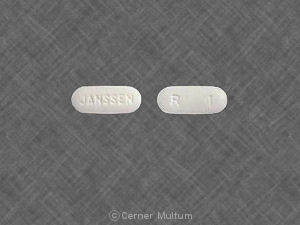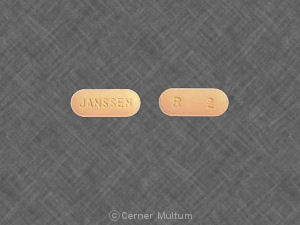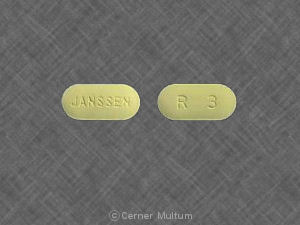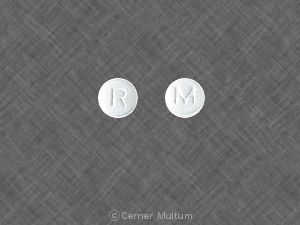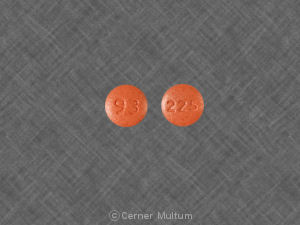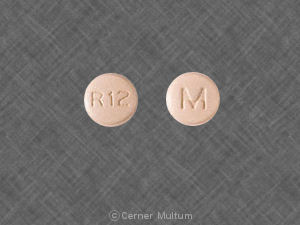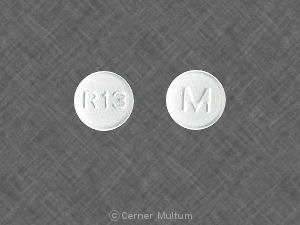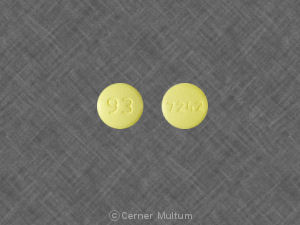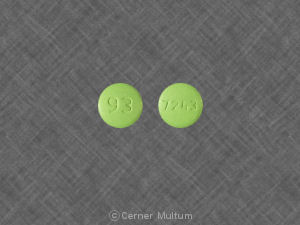What is the most important information I should know about risperidone?
Risperidone is not approved for use in psychotic conditions related to dementia. Risperidone may increase the risk of death in older adults with dementia-related conditions.
What is risperidone?
Risperidone is a antipsychotic medicine. It works by changing the effects of chemicals in the brain.
Risperidone is used to treat schizophrenia in adults and children who are at least 13 years old.
Risperidone is also used to treat symptoms of bipolar disorder (manic depression) in adults and children who are at least 10 years old.
Risperidone is also used to treat symptoms of irritability in autistic children who are 5 to 16 years old.
Risperidone may also be used for purposes not listed in this medication guide.
What should I discuss with my healthcare provider before taking risperidone?
You should not use risperidone if you are allergic to it.
Risperidone is not approved for use in psychotic conditions related to dementia. Risperidone may increase the risk of death in older adults with dementia-related conditions.
To make sure risperidone is safe for you, tell your doctor if you have ever had:
- heart disease, high blood pressure, heart rhythm problems, stroke or heart attack;
- diabetes (or risk factors such as obesity or family history of diabetes);
- low white blood cell (WBC) counts;
- liver or kidney disease;
- seizures;
- breast cancer;
- low bone mineral density;
- trouble swallowing;
- Parkinson's disease; or
- if you are dehydrated.
The risperidone orally disintegrating tablet may contain phenylalanine. Talk to your doctor before using this form of risperidone if you have phenylketonuria (PKU).
Taking antipsychotic medication during the last 3 months of pregnancy may cause problems in the newborn, such as withdrawal symptoms, breathing problems, feeding problems, fussiness, tremors, and limp or stiff muscles. However, you may have withdrawal symptoms or other problems if you stop taking your medicine during pregnancy. If you become pregnant while taking risperidone, do not stop taking it without your doctor's advice.
Risperidone can pass into breast milk and may cause side effects in the nursing baby. You should not breast-feed while using this medicine.
Do not give this medicine to a child without a doctor's advice.
How should I take risperidone?
Follow all directions on your prescription label. Do not take this medicine in larger or smaller amounts or for longer than recommended.
Risperidone can be taken with or without food.
To take the orally disintegrating tablet (Risperdal M-Tabs):
- Keep the tablet in its blister pack until you are ready to take it. Open the package and peel back the foil. Do not push a tablet through the foil or you may damage the tablet.
- Use dry hands to remove the tablet and place it in your mouth.
- Do not swallow the tablet whole. Allow it to dissolve in your mouth without chewing. If desired, you may drink liquid to help swallow the dissolved tablet.
Measure liquid medicine with the dosing syringe provided, or with a special dose-measuring spoon or medicine cup. If you do not have a dose-measuring device, ask your pharmacist for one.
Use risperidone regularly to get the most benefit. Get your prescription refilled before you run out of medicine completely.
Do not mix the risperidone liquid with cola or tea.
It may take up to several weeks before your symptoms improve. Keep using the medication as directed and tell your doctor if your symptoms do not improve.
Store at room temperature away from moisture, heat, and light. Do not liquid medicine to freeze.
What happens if I miss a dose?
Take the missed dose as soon as you remember. Skip the missed dose if it is almost time for your next scheduled dose. Do not take extra medicine to make up the missed dose.
What happens if I overdose?
Seek emergency medical attention or call the Poison Help line at 1-800-222-1222.
Overdose symptoms may include severe drowsiness, fast heart rate, feeling light-headed, fainting, and restless muscle movements in your eyes, tongue, jaw, or neck.
What should I avoid while taking risperidone?
Risperidone may impair your thinking or reactions. Be careful if you drive or do anything that requires you to be alert.
Avoid getting up too fast from a sitting or lying position, or you may feel dizzy. Dizziness or severe drowsiness can cause falls, fractures, or other injuries.
Avoid drinking alcohol. Dangerous side effects could occur.
While you are taking risperidone, you may be more sensitive to temperature extremes such as very hot or cold conditions. Avoid getting too cold, or becoming overheated or dehydrated. Drink plenty of fluids, especially in hot weather and during exercise.
What are the possible side effects of risperidone?
Get emergency medical help if you have signs of an allergic reaction: hives; difficulty breathing; swelling of your face, lips, tongue, or throat.
Call your doctor at once if you have:
- uncontrolled muscle movements in your face (chewing, lip smacking, frowning, tongue movement, blinking or eye movement);
- breast swelling or tenderness (in men or women), nipple discharge, impotence, lack of interest in sex, missed menstrual periods;
-
severe nervous system reaction --very stiff (rigid) muscles, high fever, sweating, confusion, fast or uneven heartbeats, tremors, feeling like you might pass out;
-
low white blood cells --sudden weakness or ill feeling, fever, chills, sore throat, mouth sores, red or swollen gums, trouble swallowing, skin sores, cold or flu symptoms, cough, trouble breathing;
-
low levels of platelets in your blood --easy bruising, unusual bleeding (nose, mouth, vagina, or rectum), purple or red pinpoint spots under your skin;
-
high blood sugar --increased thirst, increased urination, hunger, dry mouth, fruity breath odor, drowsiness, dry skin, blurred vision, weight loss; or
- penis erection that is painful or lasts 4 hours or longer.
Common side effects may include:
- headache;
- dizziness, drowsiness, feeling tired;
- tremors, twitching or uncontrollable muscle movements;
- agitation, anxiety, restless feeling;
- depressed mood;
- dry mouth, upset stomach, diarrhea, constipation;
- weight gain; or
- cold symptoms such as stuffy nose, sneezing, sore throat.
This is not a complete list of side effects and others may occur. Call your doctor for medical advice about side effects. You may report side effects to FDA at 1-800-FDA-1088.
What other drugs will affect risperidone?
Taking risperidone with other drugs that make you sleepy or slow your breathing can cause dangerous or life-threatening side effects. Ask your doctor before taking a sleeping pill, narcotic pain medicine, prescription cough medicine, a muscle relaxer, or medicine for anxiety, depression, or seizures.
Tell your doctor about all your current medicines and any you start or stop using, especially:
- blood pressure medication;
- carbamazepine;
- clozapine;
- fluoxetine (Prozac) or paroxetine (Paxil); or
- levodopa.
This list is not complete. Other drugs may interact with risperidone, including prescription and over-the-counter medicines, vitamins, and herbal products. Not all possible interactions are listed in this medication guide.
Where can I get more information?
Your pharmacist can provide more information about risperidone.
Remember, keep this and all other medicines out of the reach of children, never share your medicines with others, and use this medication only for the indication prescribed.
Every effort has been made to ensure that the information provided by Cerner Multum, Inc. ('Multum') is accurate, up-to-date, and complete, but no guarantee is made to that effect. Drug information contained herein may be time sensitive. Multum information has been compiled for use by healthcare practitioners and consumers in the United States and therefore Multum does not warrant that uses outside of the United States are appropriate, unless specifically indicated otherwise. Multum's drug information does not endorse drugs, diagnose patients or recommend therapy. Multum's drug information is an informational resource designed to assist licensed healthcare practitioners in caring for their patients and/or to serve consumers viewing this service as a supplement to, and not a substitute for, the expertise, skill, knowledge and judgment of healthcare practitioners. The absence of a warning for a given drug or drug combination in no way should be construed to indicate that the drug or drug combination is safe, effective or appropriate for any given patient. Multum does not assume any responsibility for any aspect of healthcare administered with the aid of information Multum provides. The information contained herein is not intended to cover all possible uses, directions, precautions, warnings, drug interactions, allergic reactions, or adverse effects. If you have questions about the drugs you are taking, check with your doctor, nurse or pharmacist.
Copyright 1996-2018 Cerner Multum, Inc. Version: 20.05. Revision date: 7/11/2017.


